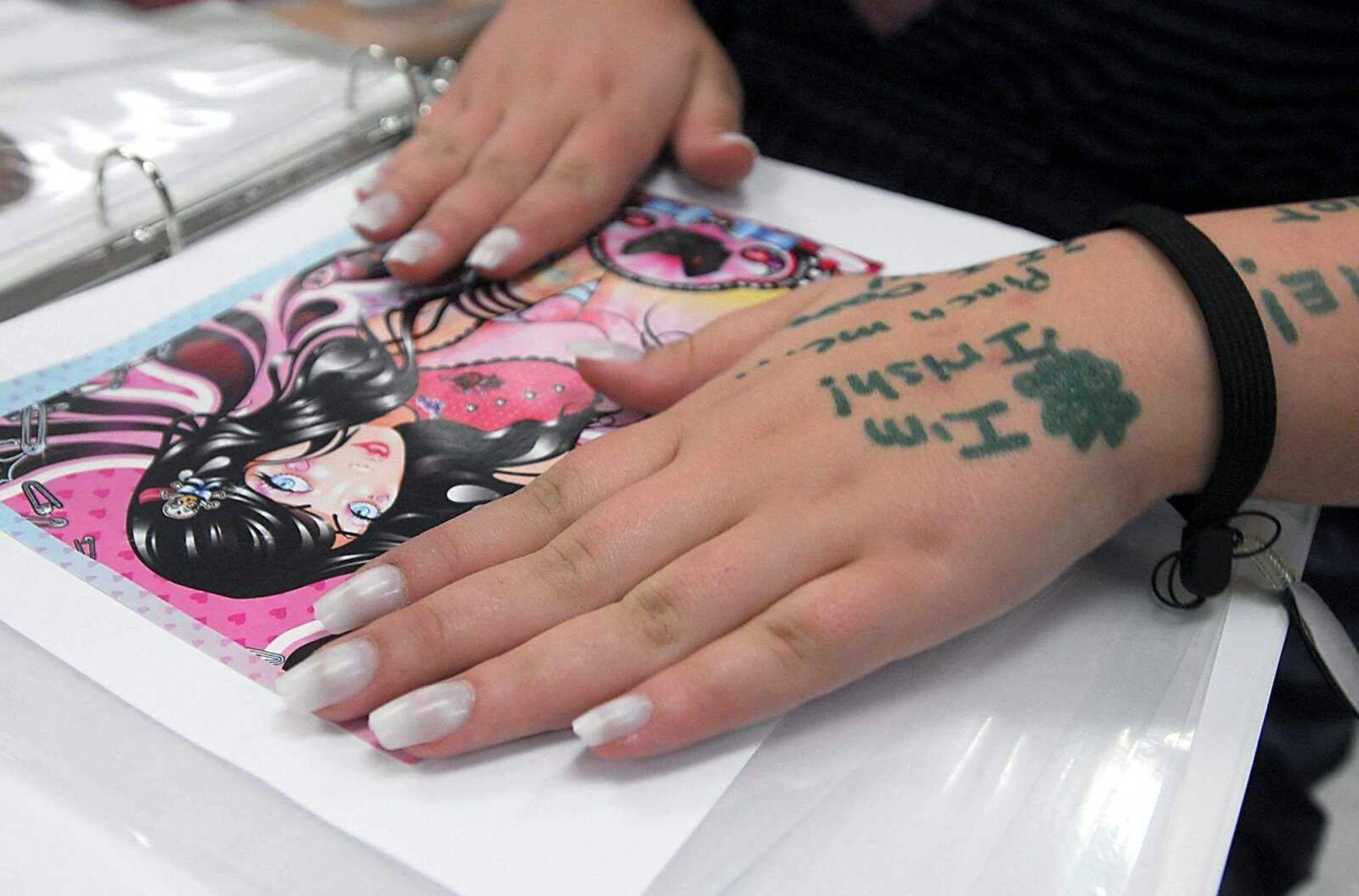Memory books provide service and educate Jackson youths on Alzheimer's
Nancy Gillard spends a lot of time with Alzheimer's patients. The Crown Hospice volunteer coordinator sees the affects of the disease on a weekly basis. She recently had the idea to create a universal memory book to help Alzheimer's patients at area nursing homes connect and interact with their families, therapists, caregivers and volunteers...
Nancy Gillard spends a lot of time with Alzheimer's patients. The Crown Hospice volunteer coordinator sees the affects of the disease on a weekly basis.
She recently had the idea to create a universal memory book to help Alzheimer's patients at area nursing homes connect and interact with their families, therapists, caregivers and volunteers.
Memory books have images on simple backgrounds that make it easy for patients to focus on the image and remember things relating to it; seeing a football player might spur a memory of high school or watching football on television.
"The three-ring binder includes an introduction, usage tips and strategies and pictures that most people can relate to. A birthday cake, a big fish and so on," Gillard.
The Alzheimer's Association website defines Alzheimer disease as the most common of the dementing disorders, affecting an estimated four million people in the U.S. It causes anguish to millions more caregivers and family members coping with their loved one's steady and irreversible decline in cognition, functioning and behavior.

Alzheimer's gets worse over time, and it is fatal. Because Alzheimer's disease destroys brain cells, it causes problems with memory, thinking and behavior severe enough to affect work, lifelong hobbies or social life.
Hoping to implement the idea, Gillard called a nursing home administrator and friend, Dave Walker of Jackson Manor, to see what he thought about providing memory books for area facilities.
"It seemed like a good idea," Walker said. "The fact that this book is designed on a universal level, not just a personal level, makes it so effective."
Although family scrapbooks might be an ideal way to stimulate memory, the time it takes to locate photos may not be feasible in a nursing home facility. Not to mention, family photos may be lost or thrown away.
Gillard then pitched the idea to Jeff Scott, her daughter's teacher at Jackson Junior High School, to find out if he might consider a memory book project for the volunteer unit of his class curriculum. The class took on project, making memory books to be used in reminiscence therapy at the nursing homes that Crown Hospice serves in Cape Girardeau County. The 20-page books have taken four months to make and are personalized with a cover drawing made by student Amanda Moyers.
Shannon Kitchen, Alzheimer's Association outreach coordinator, said that to his knowledge memory books have been around since the late 1980s and help Alzheimer's patients retain language.
"Unfortunately, as the disease gets worse they lose their speech," Kitchen said.
Kitchen said communication is important in modifying the behavior of Alzheimer's patients. For instance, if you can strike up a conversation while an Alzheimer's patient is distressed, it distracts them, making it easier for the caregiver to perform basic tasks like getting a patient dressed.
"If they're able to talk, whether it's relevant or not, this helps with depression too," Kitchen said.
What's new to him is that youth are getting involved in helping Alzheimer's patients.
Young people "are an untapped resource for learning and spreading our mission," Kitchen said.
Kitchen made an appeal to the Alzheimer's Association in St. Louis to pay for the supplies for the memory books. Gillard and Kitchen made presentations to Scott's class that included information about dementia, Alzheimer's disease and the role of caregivers.
"Many students realized they had a loved one who has been affected by one of more of the topics covered," Scott said in an e-mail. "The students are planning to present one memory book to each nursing home in Cape Girardeau County."
Some students have older relatives in nursing homes that will receive the books. Jacob Jones said he thought about his great-grandmother, who lives WHERE, while making his memory book.
"She used to live out on a farm," he said. "I just used to know that she forgets stuff. Now I know why."
His advisory class volunteer unit "helped me realize and understand what happens and how little pictures can help them," Jones said.
He included pictures of tractors, turkeys, fishing, a Coca-cola can, cornfields, football and Elvis Presley. Jones thought the Elvis Presley picture might spark his great-grandmother's memory of the singer and the mutual enjoyment she and her daughter, his grandmother, shared listening to his music.
cpagano@semissourian.com
388-3648
pertinent address:
Jackson Junior High School
210 North West Lane Jackson Mo., 63755
Connect with the Southeast Missourian Newsroom:
For corrections to this story or other insights for the editor, click here. To submit a letter to the editor, click here. To learn about the Southeast Missourian’s AI Policy, click here.










